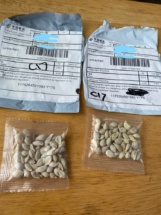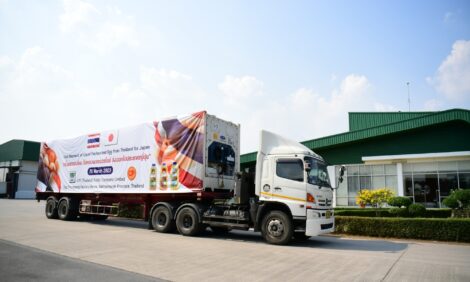



Caution urged in US after mystery seed mailings
Agriculture officials are warning American citizens to be wary of unsolicited packages of seeds mailed to them.
© Washington State Department of Agriculture

© Washington State Department of Agriculture
Agriculture departments in Kansas, Kentucky, Ohio, South Carolina and Washington state have issued warnings regarding the unsolicited packages of seeds. Departments cautioned people not to open the sealed packages of seeds and to keep the labeling intact so that officials could investigate.
Similar reports, many involving addresses from China, have been made to agriculture officials across the country. The U.S. Department of Agriculture’s Animal Plant Health Inspection Service (APHIS) is collecting reports and coordinating a national investigation.
If you receive an unsolicited package containing seeds:
- Do not open the seed packets or handle the seeds.
- Do not plant unidentified seeds. They may be invasive species that could displace or destroy native ecosystems.
- Retain the seeds and packaging and put them in a zip-top bag.
- Contact the APHIS Smuggling Interdiction and Trade Compliance (SITC) program.
“Whatever the reason for these mailings, it’s important to use caution when it comes to unidentified seeds,” said South Carolina Department of Agriculture Assistant Commissioner Derek Underwood, who oversees the agency’s Consumer Protection Division.
Unsolicited seeds could be invasive species, contain noxious weeds, could introduce diseases to local plants, or could be harmful to livestock. Invasive species and noxious weeds can displace native plants and increase costs of food production. All foreign seeds shipped to the United States should have a phytosanitary certificate which guarantees the seeds meet important requirements.
“If these seeds should bear invasive species, they may be a threat to our environment and agriculture,” said Steve Cole, director of Clemson University’s Regulatory Services unit. “We don’t want unknown species planted or thrown out where they may wind up sprouting in a landfill.”
According to Cole, USDA APHIS will have a collection-destruction program setup in the coming days. Until that program is available, he urges residents who have received unsolicited seeds in the mail appearing to be from China to store the seeds safely inside a zip top bag, not plant or handle the seeds and report the incident to their state agriculture department.









